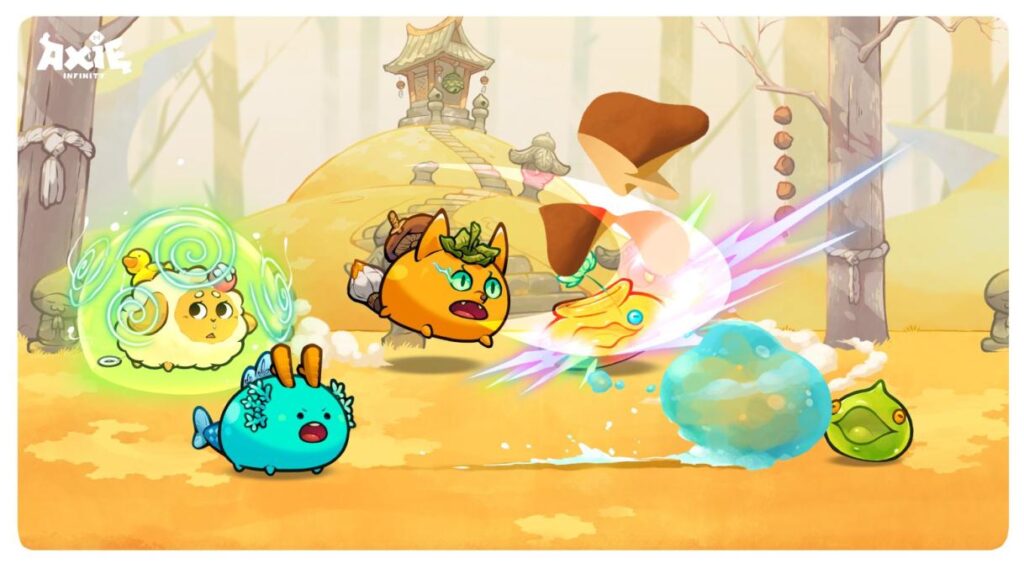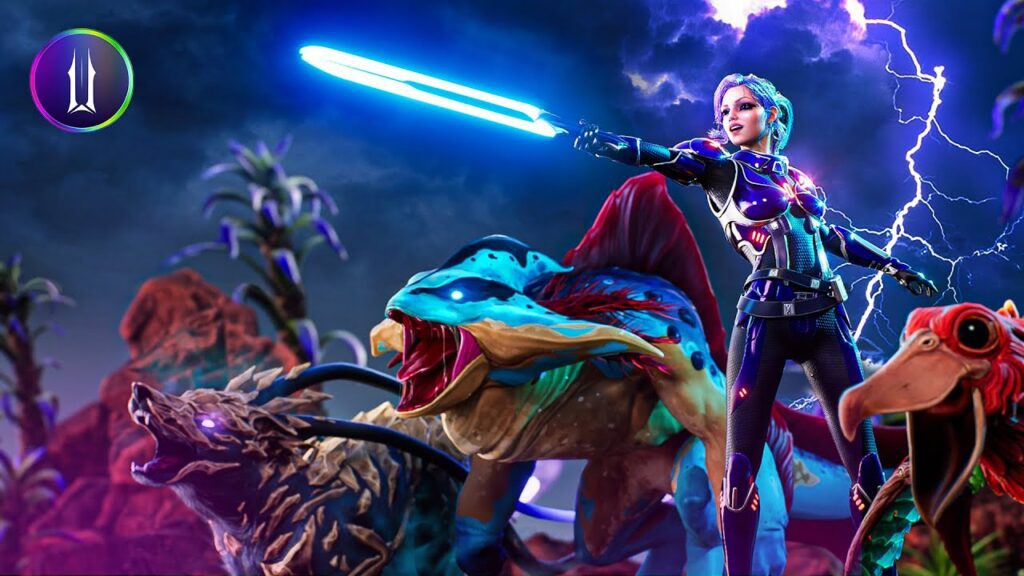The gaming industry has undergone significant transformations over the past few decades, evolving from simple pixelated graphics to immersive virtual realities. However, the advent of blockchain technology is poised to catalyze the next major shift in this dynamic landscape. Blockchain game companies are not just creating games; they are redefining ownership, monetization, and player engagement. This article delves into the intricate mechanics of blockchain gaming, its implications for the future, and real-world examples that illustrate its potential.
Understanding Blockchain Technology in Gaming
At its core, blockchain is a decentralized ledger technology that enables secure and transparent transactions across a network of computers. Each transaction is recorded in a block, which is then linked to the previous block, forming a chain. This structure ensures that data is immutable and tamper-proof, making it an ideal solution for various applications, including gaming.
In the context of gaming, blockchain technology introduces several key features:
1. True Ownership of In-Game Assets
Traditionally, players purchase in-game items, but they do not own them in the true sense; the game developers retain control. Blockchain changes this paradigm by allowing players to own their assets as non-fungible tokens (NFTs). Each NFT is unique and can be bought, sold, or traded on various marketplaces. For instance, in the game “Axie Infinity,” players can breed, raise, and battle creatures called Axies, which are represented as NFTs. As of September 2021, Axie Infinity had generated over $1 billion in sales, showcasing the lucrative potential of true ownership (DappRadar, 2021).

In Axie Infinity, players create, battle, and own Axie NFTs.
2. Decentralized Economies
Blockchain games often feature decentralized economies where players can earn cryptocurrency through gameplay. This model not only incentivizes engagement but also allows players to monetize their skills. For example, “The Sandbox” is a virtual world where players can create, own, and monetize their gaming experiences. The platform utilizes its native token, SAND, which players can earn by participating in the ecosystem. According to a report by NonFungible.com, the total value of virtual land sales in The Sandbox reached $86 million in 2021, highlighting the financial opportunities within decentralized gaming economies (NonFungible.com, 2021).
3. Enhanced Security and Transparency
Blockchain’s inherent security features protect players from fraud and hacking. Each transaction is recorded on a public ledger, making it easy to verify ownership and authenticity. This transparency fosters trust between players and developers. For instance, “Gods Unchained,” a trading card game, allows players to truly own their cards as NFTs. The game’s smart contracts ensure that players can trade cards securely without the risk of counterfeiting (Gods Unchained, 2021).
Challenges Facing Blockchain Game Companies
Despite the promising potential of blockchain gaming, several challenges must be addressed for widespread adoption:
1. Scalability Issues
Many blockchain networks face scalability challenges, which can lead to slow transaction times and high fees during peak usage. For example, Ethereum, the most widely used blockchain for NFTs, has experienced congestion, resulting in gas fees that can exceed $100 during high-demand periods. Solutions such as Ethereum 2.0 and Layer 2 scaling solutions like Polygon are being developed to address these issues, but they are still in progress.
2. Regulatory Uncertainty
The regulatory landscape for blockchain and cryptocurrencies is still evolving. Governments worldwide are grappling with how to classify and regulate digital assets. This uncertainty can deter investment and innovation in the blockchain gaming sector. For instance, in 2021, the Chinese government imposed a ban on cryptocurrency transactions, which significantly impacted blockchain gaming companies operating in the region (Reuters, 2021).
3. User Experience and Accessibility
Many blockchain games require players to have a certain level of technical knowledge to navigate wallets, private keys, and cryptocurrency exchanges. This complexity can alienate casual gamers who are accustomed to traditional gaming experiences. Companies must prioritize user-friendly interfaces and educational resources to bridge this gap.
Real-World Examples of Blockchain Game Companies
Several blockchain game companies are leading the charge in this innovative space:
1. Axie Infinity
As mentioned earlier, Axie Infinity has become a flagship example of blockchain gaming. The game allows players to earn a living by playing, with some players in developing countries reportedly earning more than their local minimum wage. The game’s success has led to a burgeoning community and a thriving economy, with over 2 million daily active users as of August 2021 (Axie Infinity, 2021).
2. Decentraland
Decentraland is a virtual reality platform powered by the Ethereum blockchain, where users can create, experience, and monetize content and applications. Users can purchase virtual land using the MANA cryptocurrency, and the platform has seen land sales reach record highs, with a single plot selling for over $2.4 million in June 2021 (CoinDesk, 2021). This demonstrates the potential for virtual real estate in the blockchain gaming ecosystem.
3. Illuvium
Illuvium is an open-world RPG built on the Ethereum blockchain that combines elements of auto-battlers and collectible games. Players can capture creatures called Illuvials, which are also NFTs. The game has generated significant buzz, with a successful fundraising round that raised $5 million in just a few days (Illuvium, 2021). Its unique blend of gameplay mechanics and blockchain technology positions it as a potential leader in the space.

An innovative RPG, Illuvium integrates NFTs and strategic battles.
The Future of Blockchain Gaming
The future of blockchain gaming is bright, with numerous opportunities for innovation and growth. As technology continues to evolve, we can expect to see:
1. Increased Interoperability
Future blockchain games may allow players to use their assets across multiple games and platforms, creating a more cohesive gaming experience. This interoperability could lead to a more vibrant ecosystem where players can seamlessly transition between different games while retaining ownership of their assets.
2. Enhanced Community Engagement
Blockchain technology enables developers to create decentralized autonomous organizations (DAOs) that empower players to participate in decision-making processes. This shift towards community governance can foster stronger player engagement and loyalty, as players feel more invested in the game’s future.
3. Mainstream Adoption
As blockchain technology matures and becomes more user-friendly, we can expect mainstream adoption of blockchain games. Major gaming companies are already exploring blockchain integration, with Ubisoft and Electronic Arts showing interest in NFTs and decentralized gaming experiences. This trend could lead to a significant shift in how games are developed and monetized.
Conclusion
Blockchain game companies are at the forefront of a revolution that is reshaping the gaming industry. By leveraging the unique features of blockchain technology, these companies are creating new opportunities for ownership, monetization, and player engagement. While challenges remain, the potential for growth and innovation is immense. As we move forward, the integration of blockchain into gaming will likely lead to a more decentralized, player-centric ecosystem that benefits both developers and gamers alike.
In summary, the key takeaways from this exploration of blockchain gaming include the importance of true ownership of in-game assets, the emergence of decentralized economies, and the need to address scalability and regulatory challenges. As the industry evolves, the collaboration between technology and creativity will pave the way for a new era in gaming.

